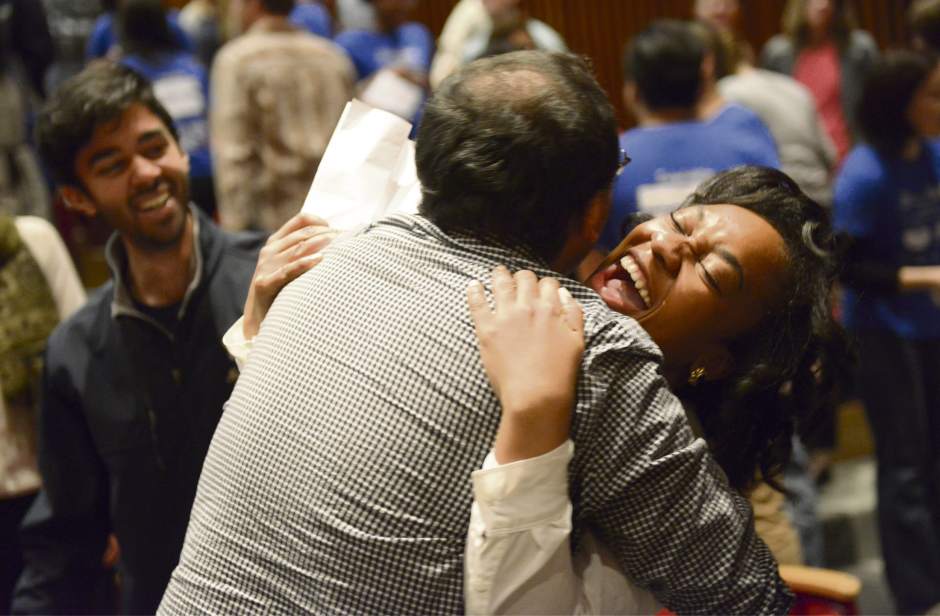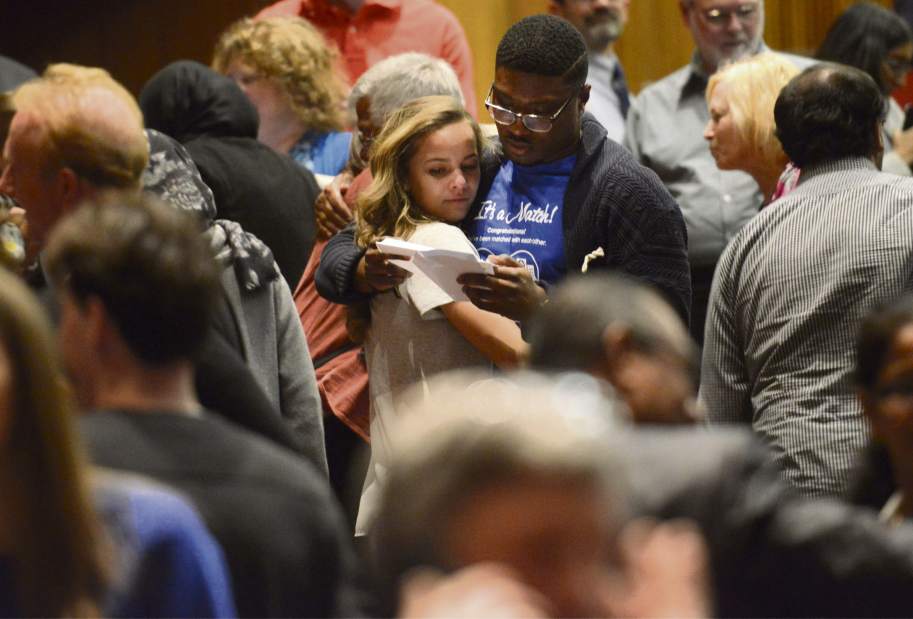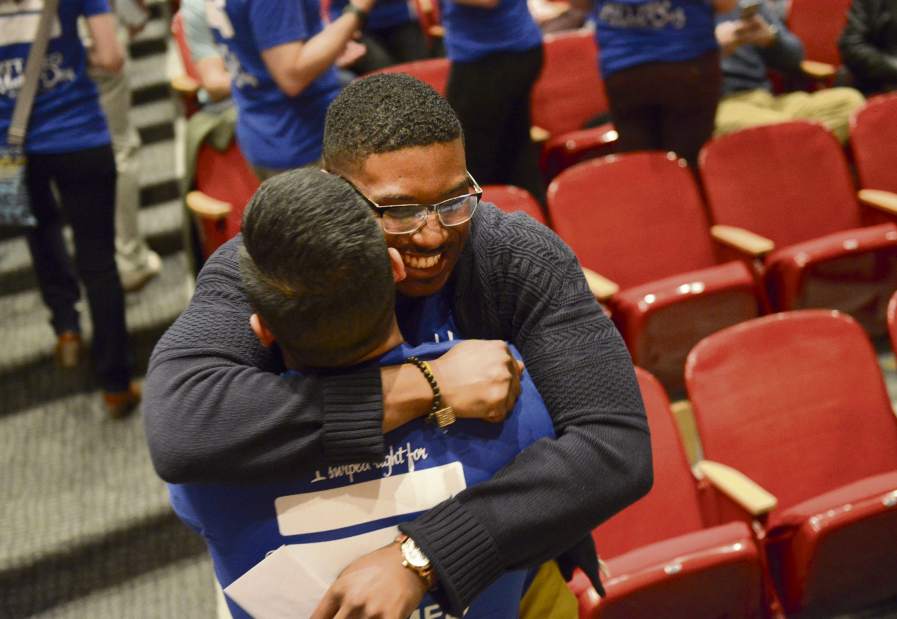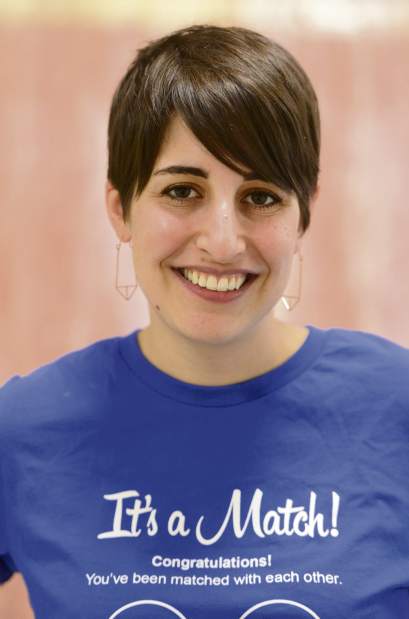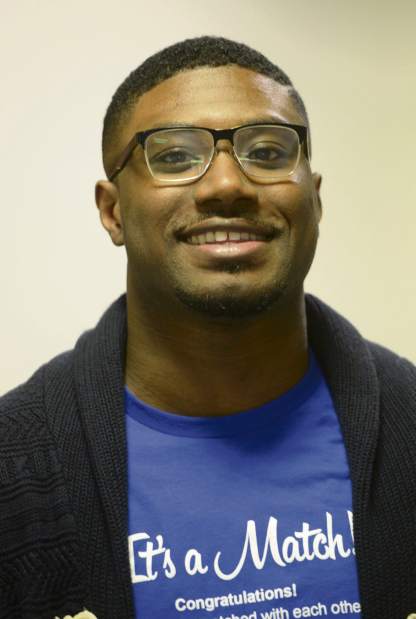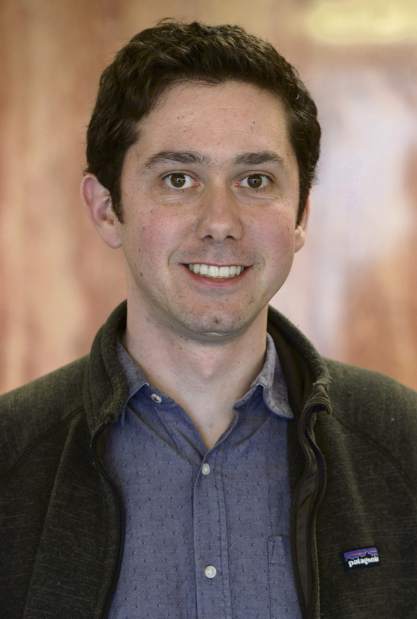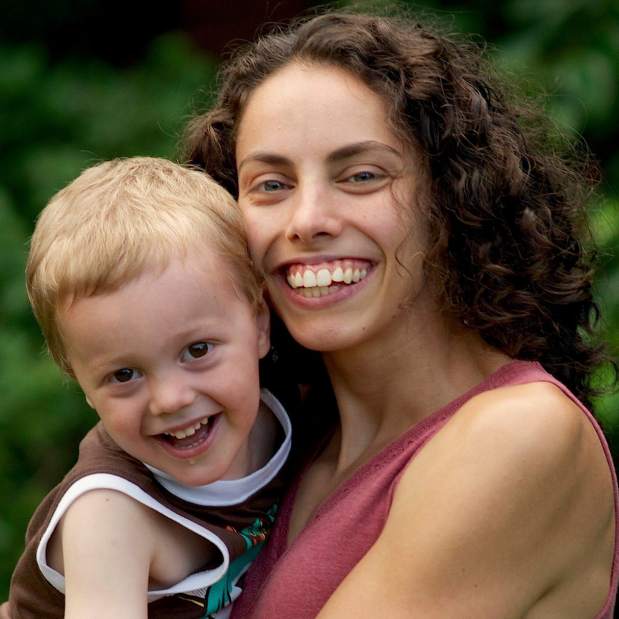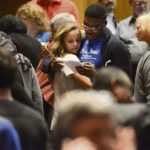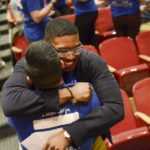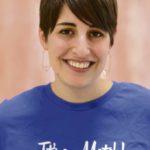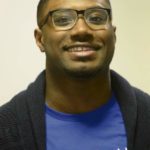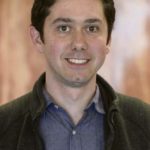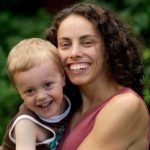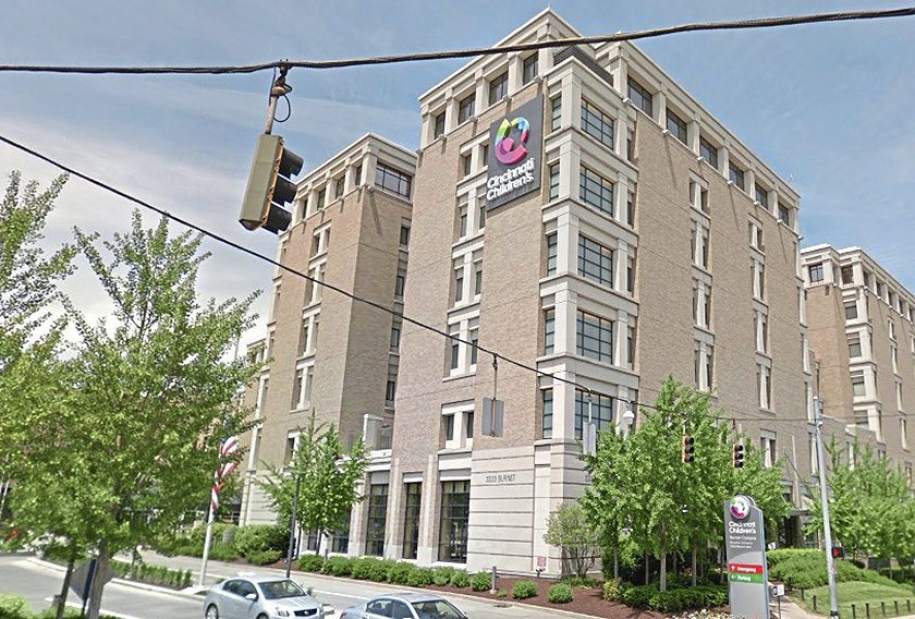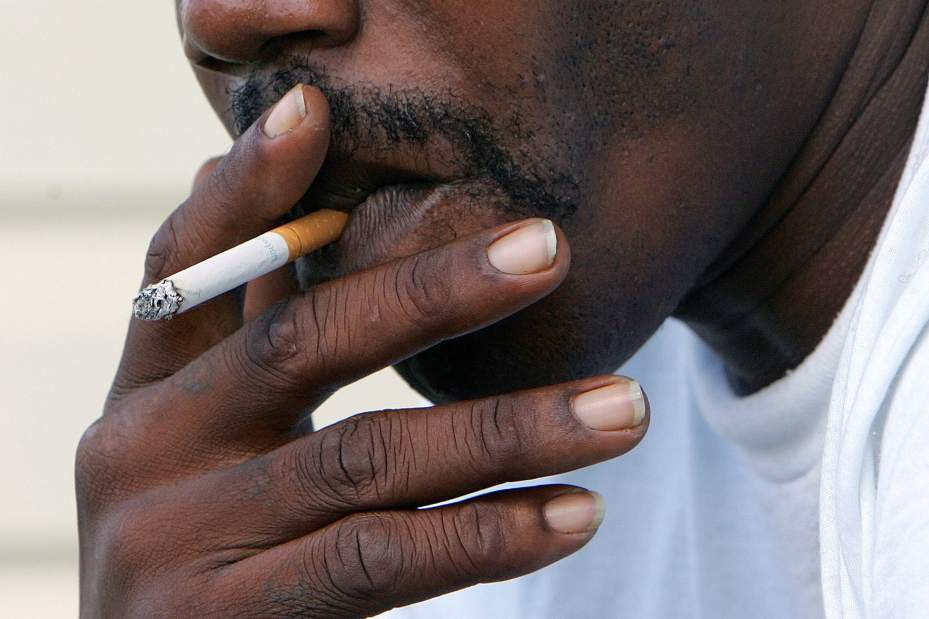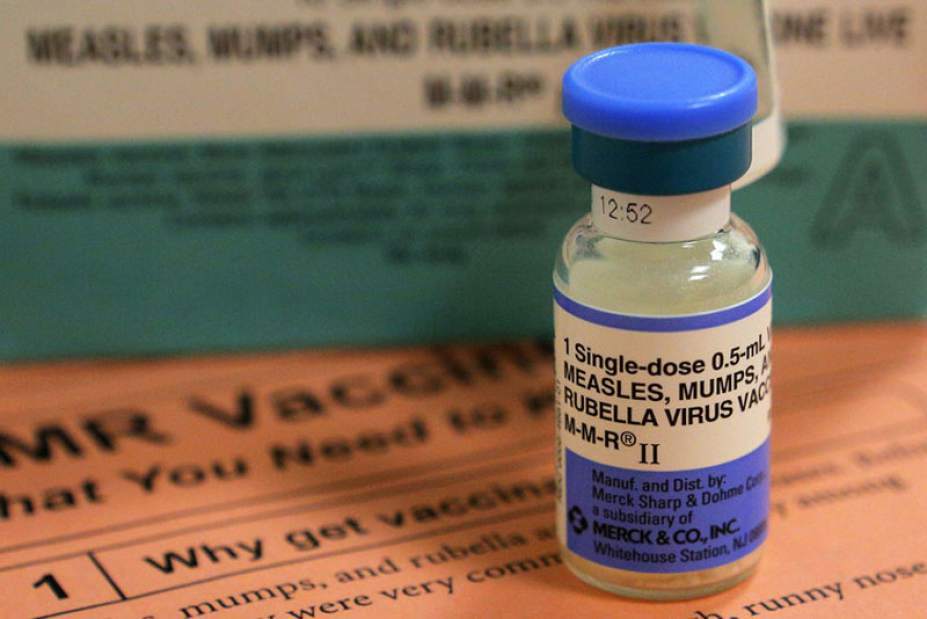The future arrived in sealed envelopes for 141 students at the University of Pittsburgh School of Medicine. The soon-to-be graduates anxiously packed Friday inside Scaife Hall's auditorium during an arranged marriage of sorts.
Each envelope contained a sheet of paper that informed the students about the location of their residency training — a pivotal step in their medical careers. This annual pairing rite that occurs nationally is known as Match Day.
“It's exciting, no doubt, but it's also extremely nerve-wracking,” said Kevin Baidoo, 28, who will do his residency at Rush University Medical Center in Chicago, where he plans to specialize in physical medicine and rehabilitation.
Here's how the process works: after months of interviews, applicants and residency programs rank each other, and a computer algorithm determines where the aspiring physicians will cultivate their respective crafts.
The graduating class opened their envelopes in unison in an emotion-filled crescendo full of joyous screams, hugs and handshakes.
“I'm relieved to finally know where I'm going,” said Andrey Finegersh, who is headed to University of California San Diego Medical Center with his family. “It's a big day.”
Dr. Joan Harvey, associate dean of student affairs at Pitt's School of Medicine, told the future doctors:
“You should be applauded and celebrated. You should know how proud of each and every one of you we are.”
“It's the culmination of four years of hard work, sweat and grit. It's a pretty unique event, a little chaotic but a lot of fun,” she said.
The Tribune-Review attended this year's ceremony and talked with four medical students before they met their matches.
Kevin Baidoo
Age: 28
Hometown: Pittsburgh
Specialty: Physical medicine/rehabilitation
Residency: Rush University Medical Center in Chicago
Kevin Baidoo still recalls the sick feeling in the pit of his stomach just before he placed the toughest phone call of his life.
He had just torn the patella tendon in his left knee while playing high school basketball and would need surgery. Baidoo, who had committed to the University of Pennsylvania football team, had to inform his new coach.
“I was convinced I'd be cut from the team,” he said. “One hundred percent I thought that was going to happen. I wasn't even sure that I'd be able to run again.”
Instead, the coach stuck with Baidoo, and the post-surgical rehabilitation changed his life.
After improving his knee, Baidoo, a public health major at Penn, knew he'd pursue a career in physical and sports medicine and become a doctor.
“I felt like the surgeon and the rehabilitation doctors gave me my life back,” he said. “I wanted to do that for others.”
Baidoo went on to play wide receiver at Penn, where he was also a sprinter on the track and field team.
The son of a gastroenterologist, Baidoo moved to Pittsburgh in 2009 to study at Duquesne University, receiving a master's degree in health care management. He proceeded to enter Pitt's School of Medicine.
He plans to practice medicine and eventually use his master's degree to seek out a future in a hospital administration.
On Pittsburgh: “I like the fact that the city is built up of small neighborhoods that give it a (homey) feeling. There's a sense of small-town closeness with all the things you need from a big city.”
Pressing issues in medicine:
“There's still a lot of confusion when it comes to insurance payments for physical rehabilitation. For example, there is a lot of rehab equipment patients could use at home in their recovery, if only their insurance covered it.”
Andrey Finegersh
Age: 29
Hometown: Mission Viejo, Calif.
Specialty: Otolaryngology/surgery
Residency: University ofCalifornia San Diego Medical Center
Andrey Finegersh's father was a plumber, which directly impacted his decision to become a doctor.
The rationale is simple: “I spent a lot of time fixing furnaces and air conditioners and plumbing with him,” he said.
“The more I thought about it, I knew that I wanted to do something with my hands that could provide care to others.”
An overachiever of sorts, Finegersh obtained a Ph.D. at the same time he attended Pitt's medical school in a combined program. His specialty, otolaryngology — or the study of the ear, nose and throat — is one of the most competitive medical fields.
“The field is pretty small, and there are a lot of med students interested in being specialists,” he said. “The surgery is very interesting, and the patients are extremely grateful.”
Besides juggling the demands that will accompany a residency program, Finegersh will continue to adjust to the responsibilities that come with parenthood. He and his wife, Alison, have a 13-month-old son, Theo.
“Being married with a son was definitely the hardest part of the residency interview process,” he said. “My wife made huge sacrifices for me, because I was flying around to all of these places for meetings. It's clear that being the significant other of a physician is not an easy thing.”
Besides the medical degree, Finegersh's doctoral thesis centered on the effects of alcohol on the brain, specifically the way alcohol is regulated and expressed in genes. He participated in a study that showed a father's exposure to alcohol could alter expression of the genes he passed down to his children, in particular male offspring.
He joked that the study didn't lead to sobriety.
“I found that alcohol researchers drink a lot more than I imagined,” he said with a laugh.
On Pittsburgh: “There is a much greater sense of community here than on the West Coast. People know about important issues related to (the) city, and they're always excited to see the city grow. The residents are more connected to each other here than they are in California.”
Pressing issues in medicine: “The age of personalized medicine is evolving. There's no longer a belief that one single pill may affect 50,000 people in the same way. And there's always the overriding theme of finding a way to provide quality care at lower costs. The way insurance works with some patients not being able to visit their doctor of choice because of their health care plan is frustrating. It's a poor system in general.”
Adi Shafir
Age: 29
Hometown: Cupertino, Calif.
Specialty: Internal medicine/geriatrics/palliative care
Residency: UPMC
Love and medicine don't always mix, but Adi Shafir has faith she can make it work.
In applying for residency programs, the California native took her boyfriend's love of Pittsburgh into great consideration — that and the vast cost-of-living differences between both regions. Her first choice was to remain here, and she got her wish Friday.
“It's definitely not easy to balance personal factors with these life-altering decisions,” she said, while hugging boyfriend Jason Sepac. “But I get to keep my Lawrenceville apartment.”
Shafir's medical passion lies in internal medicine and in particular, geriatric care, a field she says scares off many medical students.
“A lot of people see the older patients as burdens,” she said. “As doctors, they are going to be dealing with maybe 10 medical conditions, instead of one. The patients may have additional cognitive impairment. To me, I find the challenge intellectually rewarding.”
Shafir believes that being a geriatrician requires extra communication and familiarization with personal stories of each patient.
“If you're dealing with someone who is 78 years old, there's a lot you're going to have to learn about that person in developing a plan to best treat him or her,” she said.
After graduating from the University of California at Berkeley in 2008 with a degree in molecular biology, Shafir spent two years employed as a data analyst for Kaiser Permanente in the San Francisco region. There she worked in the continuum of care department that focused on house calls. She then worked as a policy analyst for the National Academy for State Health Policy in Washington, D.C., with a concentration on state health care policies.
“Looking at all the data we collected about patients, especially older people, was a really interesting look at the bigger picture of medicine,” she said. “I had an opportunity to see how some things impact medicine, such as whether things are reimbursed, how they are reimbursed and how doctors are paid. I was interested in all how of those factors affect patients.”
On Pittsburgh: “The first winter was tough, but it's a fun place to live with tons of great restaurants. It's not the most diverse place, which I miss. But most people here are very nice.”
Pressing issues in medicine: “I'd say the biggest crisis overall is cost of care and the sustainability of that. The most pressing issue, specifically in geriatrics, is the lack of providers. There's a lot of special considerations in taking care of older people, and a lot of doctors are shying away from that.”
Janelle Whitney
Age: 30
Hometown: Middleburg
Specialty: Obstetrics and gynecology
Residency: TuftsMedical Center in Boston
Janelle Whitney chose to hang out in the woods with her three children rather than open an envelope in a room full of fellow students on Match Day.
She skipped the event to go hiking at McConnells Mills State Park with her daughter, Grace, 10, and sons, Isaac, 6, and Samuel, 4.
“I made a lot of friends at medical school, and I see the value in celebrating with them,” Whitney said. “But to me, the most important thing is my children. My boys are active and love to be outside.”
She received an email with her match during the hiking trip.
“That's the best place for us to all find out together,” she said.
The duties that accompany motherhood piqued her interest in obstetrics and eventually, medical school. Reaching the decision to endure the rigors of raising three kids while attending medical school did not come lightly.
“It wasn't like I would go to medical school to try and figure something out,” Whitney said. “I knew it had to be something I was certain of and felt passionate about. It actually made school rather easy. It was a great investment.”
On Pittsburgh: “My kids love Pittsburgh, and I've come to establish some great relationships here. I love the parks and how accessible they are. And it's a very affordable city for all it has to offer.”
Pressing issues in medicine: “In general, learning how to better deal with health promotion and prevention of chronic diseases like obesity, diabetes, high blood pressure.”


